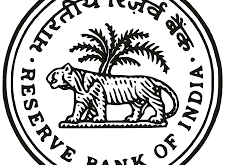- Nilesh Kothari, Chief Financial Officer, PNB MetLife
“The GST Council’s decision to exempt individual life insurance policies from GST is a landmark development for India’s insurance sector. This progressive measure directly addresses the need to make life insurance more accessible and affordable, helping to ensure that financial protection reaches every household. By lowering the cost of essential coverage, the government has empowered individuals to prioritize safeguarding their family’s future. At PNB MetLife, we see this as a significant step towards enhancing insurance penetration in the country. This decision will undoubtedly strengthen the nation’s financial resilience.”
- GST 2.0 will boost consumption in the economy, Mr. SANJAY JAIN, DIRECTOR, ELANPRO, said, “The GST rationalisation is a welcome step that boosts consumption and frees investment headroom. With hotels, restaurants, FMCG, and dairy all benefiting from lower slabs, businesses will have more scope to invest in food safety, storage, and cold logistics. Solar-powered refrigeration also becomes more viable, driving future cold chain growth.”
- Ms. Suneeta Reddy, Managing Director of Apollo Hospitals Enterprise Limited
“We welcome the rationalization of GST, which comes as a corollary to the tax cuts and 100% FDI in insurance announced in the Union Budget earlier this year. Together, this provides a valuable platform to make healthcare more accessible and affordable. The reduction in GST rates of life-saving and other drugs, and the standardization of GST for consumables are very positive steps both for the patient and for the sector. India’s aspiration for more health infrastructure will be well-served with the reduction in GST for construction inputs like cement, fly ash bricks, marble and granite. Above all, we believe this will enable many more Indians to purchase health insurance and insurers will serve a larger insured pool. This will truly unlock access to high-quality healthcare for India.”
-
Mr. Naveen Chandra Jha, MD & CEO, SBI General Insurance
“The GST Council’s decision to reduce tax on the healthcare sector marks a transformative step toward greater affordability and inclusivity. At a time when India’s healthcare market is poised for significant growth, this reform acts as a timely catalyst to strengthen the ecosystem by addressing one of the biggest barriers to quality healthcare affordability.
Whether it is making life-saving drugs more accessible or lowering the cost of health insurance, the move directly tackles a long-standing challenge and will enable millions of families to take a crucial step toward financial and medical security.
For the health insurance sector, this change comes at a pivotal moment. As India’s healthcare needs expand and medical risks evolve, the importance of universal health coverage has never been more evident. Health insurance is not merely a financial product, it is a lifeline that protects families, supports well-being, and builds resilience against future uncertainties.
At SBI General Insurance, we view this reform as a strong driver in accelerating India’s journey toward ‘Insurance for All by 2047.’ Our focus will be on leveraging this opportunity to design affordable, accessible, and customer-centric health insurance solutions, while expanding our reach across rural and semi-urban India.”
- Mrs. Jyoti Mayal, Chairperson of the Tourism and Hospitality Skill Council, said: “The latest GST reforms bring both relief and responsibility for travel agents. On one hand, reduced hotel tariffs will stimulate demand in the domestic tourism segment. On the other, the removal of ITC in this category will require agents to realign their pricing strategies. Most importantly, the recognition of intermediary services as exports is a game-changer, unlocking opportunities for Indian travel businesses to expand their global footprint while enjoying the benefits of zero-rated taxation. luxury travel is as important and needs to be promoted more as the returns are higher spends are higher it is exclusive travel and india needs to focus in the same for inbound and be more competitive than the neighbouring countries”
- Ankur Mittal, Co-Founder, IPV says,”GST 2.0 is a great initiative from the government that not only simplifies the tax framework but will also create a powerful base for India’s economic growth. With the removal of complex taxes and cutting on working capital blockages, it gives a consumption boost across businesses generating strong domestic demand which accounts for nearly 60% of India’s GDP. Rationalisation of gst slabs is likely to widen the tax base thus generating more revenue for the govt and at the same time bringing more businesses under a formal economy. Such reforms further improve ease of doing business. We believe GST 2.0 will deliver benefits across sectors and further strengthen its economy”.
- Mr Vimal Nadar, Senior Director & Head of Research, Colliers India.
Within real estate, the slashing of GST on cement will play a critical role in rehauling project cost structures as cement forms a major value component in the overall cost of construction. Residential real estate, particularly new homebuyers, stand to gain as developers are likely to pass on the benefit of lower costs in the form of reduced housing prices. Developers’ profitability margins, too can potentially improve, enhancing the overall financial health of the real estate sector. The timing of this rollout is appropriate, with the festive season in the offing and the real estate sector is already reaping the benefits of favourable interest rates.
- Mr Piyush Bothra, Co-Founder and CFO, Square Yards
- Mr Shrinivas Rao, FRICS, CEO, Vestian
-
Varun Gupta, CoFounder GOBOULT
The GST reform is not just a tax update, it is a milestone in India’s economic journey since 2017. For everyday Indians, it brings immediate relief with lower rates on essentials like food, medicines, insurance and household goods. That is a meaningful step because a tax system should first serve the people it represents.
For the audio and wearables category, GST on final products remains at 18 percent, so prices stay stable. The bigger shift lies in how the system now works. Moving to a simpler two-rate structure of 5 and 18 percent means fewer complications, less compliance stress for MSMEs, and greater predictability across the value chain.
In the long run, this kind of stability allows companies like ours to reinvest efficiencies into technology, design and innovation. It is a reform that touches both the consumer at home and the manufacturer in the factory, and it sets the stage for India to emerge as a global hub, shaping not just domestic growth but also our role in the world economy.
- Ashish Agarwal, Director, AU Real Estate
“The move to rationalize GST slabs is a crucial development that brings much-needed clarity and simplicity to the real estate taxation system. By easing the overall tax burden on housing, it is likely to boost buyer confidence and encourage quicker, more confident purchasing decisions. For developers, having a more predictable and streamlined tax structure means fewer hurdles and smoother progress on projects. This change is set to inject new energy into the real estate sector, paving the way for steady growth and reinforcing India’s stature as a vibrant housing market.”
- Parvinder Singh, CEO, Trident Realty
“The shift to a streamlined GST structure is an impactful reform for India’s real estate sector. With rates on key materials like cement now lower, construction becomes more cost-efficient, giving developers room to build smarter with greater flexibility in pricing. This simplification enhances cost transparency, reduces tax inefficiencies, and offers a more stable environment for long-term planning. For homebuyers, the impact is twofold with greater affordability, and a noticeable uplift in overall value. These savings give us room to do more – invest in smarter layouts, sustainable materials, and the kind of modern conveniences today’s buyers expect. By easing the overall tax load, this reform is expected to make quality housing more accessible while energising demand across key urban markets.”
- Sachin Joseph, EVP – Marketing & IT at Paragon Footwear
“We welcome the government’s decision to reduce GST on footwear. This move will make quality footwear more affordable for the common man and the middle class while also giving a strong boost to domestic demand. For an industry that is highly labour-intensive and a vital part of India’s manufacturing economy, the reduction provides timely relief and helps organised players like us compete more effectively with unorganised markets. It also creates the opportunity to expand production, generate more jobs, and support India’s vision of inclusive growth. At Paragon, we see this as a step that strengthens both the consumer and the industry ecosystem and also simplifies the way we do business under GST.”
- Mr. Arjun Bajaj, Director of Videotex
“We welcome the government’s decision to reduce GST on TVs from 28% to 18%, a long-standing demand of the industry. This move will not only boost sales but also encourage consumers to upgrade to larger screen sizes. With tax cuts on other items as well, disposable incomes are set to rise, enhancing buying power and supporting overall economic growth. Announced during the festive season, the step is especially impactful as it makes advanced home entertainment more accessible. We foresee a clear shift in demand from 32-inch models to popular sizes like 40, 43, and 55 inches—expanding the market and improving consumer lifestyles”
- Amit Mahajan, Director, Paras Defence & Space Technologies Ltd
With GST reforms reducing GST on Drones and exempting Military Drones and Drone components such as Batteries is a clear indication that Drones are being recognized as a platform of the future. Be it commercial applications or military, impact of drones on our lives is inevitable and the new reforms will boost the industry and encourage technology development in this space. The new reforms have entrusted faith in Drone Platforms to become a high volume industry with enabled supply chain.
 Newspatrolling.com News cum Content Syndication Portal Online
Newspatrolling.com News cum Content Syndication Portal Online





